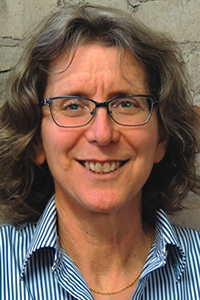
Nora Goldstein
BioCycle December 2017
In September, while attending the summit, Catalysts of the Climate Economy in Burlington, Vermont, I listened to a lecture by Paul Hawken, a long-time eco-entrepreneur and most recently, Editor of Drawdown, a book and ongoing project focused on how to reverse global warming. My primary takeaway from the lecture was Hawken’s use of the term, “no regrets solutions” to help describe the “extensive array of impactful measures already in existence.” He defined no regrets solutions as “actions that make sense to take regardless of their climate impact since they have intrinsic benefits to communities and economies. These initiatives improve lives, create jobs, restore the environment, enhance security, generate resilience, and advance human health.”
It is no coincidence that composting and anaerobic digestion are on the list of Drawdown solutions. When done correctly, these organics recycling solutions come with no regrets. They create jobs, restore the environment, enhance energy, soil, water and food security, and generate resilience. And indirectly, these solutions improve lives and advance human health by reducing exposure to lawn and agricultural chemicals, reducing dust and lead exposure by vegetating exposed urban soils, and yielding cleaner air by reduced combustion of fossil fuels.
Our no regret solutions stand in stark contrast to the “regret solutions” that have been given center stage in 2017, thanks to the Trump administration, some Members of Congress, and all the special interest industries, primarily those in the fossil fuel and chemical sectors. It has been devastating to watch the U.S. Environmental Protection Agency morph into what feels like the Environmental “Regrets” Agency.
In reality, for much of the almost 60 years that BioCycle has been in existence, the landscape of 2017 has been the playing field for organics recyclers. The net result is that we have beat the odds, and in many instances thrived, processing millions of tons of organics into compost, digestate, renewable electricity and renewable natural gas and fuels. Along the way, millions of citizens and businesses have become practitioners, source separating on the front end, and utilizing the high value products on the back end.
The findings of the 2017 BioCycle Residential Food Waste Collection Access Study are one measurement of the adoption of no regrets solutions. BioCycle began its national residential food waste collection survey in 2005 when we identified 24 municipalities serving about 580,000 households in the U.S. with curbside food waste collection. This year’s study, conducted under contract with the Institute For Local Self-Reliance, identified 326 communities offering curbside food waste collection programs, serving 5.1 million households. Drop-off programs were quantified for the first time in 2017. The tally — 318 communities with drop-off sites, providing food waste collection access to 6.7 million households.
This residential organics collection infrastructure in the U.S. is complemented by thousands of organics collection programs at businesses, K-12 schools and universities, correctional and health care facilities, sports venues and festivals, and elsewhere. In each instance, all of the people doing the source separation of food waste and other compostables are being empowered to practice a no regrets solution with multiple intrinsic benefits. Frequently, the organics diversion practice is paired with community and school gardens, improved access to fresh foods, and the blossoming of local enterprises to provide support services.
So as we wrap up 2017, let’s take a step back from the daily grind and think about how we can advance implementation of no regret solutions. Happy Holidays, and all the best wishes for the New Year.









